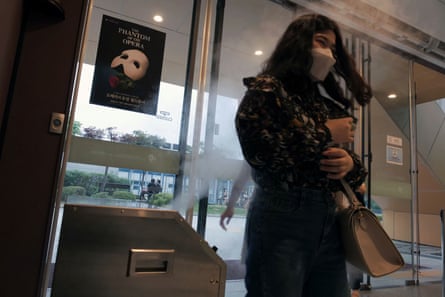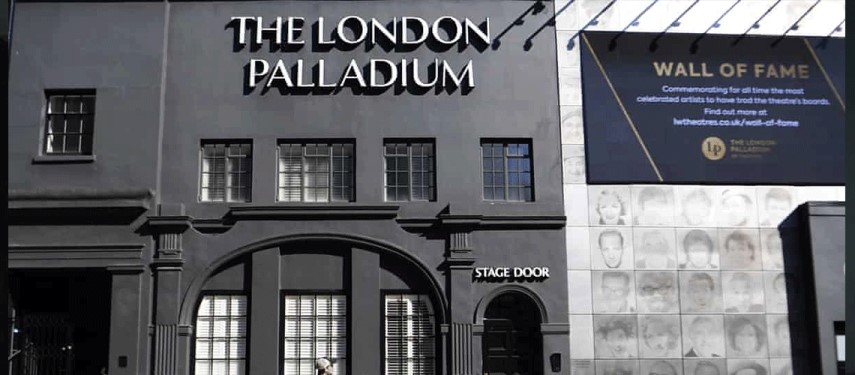Airlocks, infrared cameras and remote temperature-taking all part of plan adapted from The Phantom of the Opera production in South Korea
Andrew Lloyd Webber will use the London Palladium to trial a series of safety measures in July to demonstrate to the government whether theatres can reopen without social distancing during the coronavirus pandemic. Lord Lloyd Webber told BBC Radio 4’s Today programme on Friday that he would be using similar methods that ensured the swift reopening of a touring production of his musical The Phantom of the Opera in South Korea.
“The key thing that they have is incredibly good hygiene … both backstage for the cast and the crew and the orchestra but also for people in the front of house,” said Lloyd Webber. The production in Seoul closed at the outbreak of the virus, reopened and then closed down again for a brief period when one of the cast contracted Covid-19. It has since remained open and uses equipment such as thermal imaging cameras to measure temperature and self-cleaning antibacterial door handle covers. The audience wears face masks and uses hand sanitiser.
In an interview with the Stage newspaper last month, LW Theatres’ chief executive Rebecca Kane Burton explained how the system works: “There is an infrared camera at the stage door, your temperature is taken remotely as you walk in, and a great big dashboard flashes up [to indicate] whether you can come in the building or not. As soon as it does, the airlock releases, the door opens and you go in.”

Lloyd Webber told Today: “What I hope to do is to be able to demonstrate to the government what has happened in Korea.” The final pieces of necessary equipment will soon be delivered to the Palladium and it is hoped that the tests can begin in the first week of July. With just under 2,300 seats, the Palladium has the biggest capacity of the seven London venues in the composer’s LW Theatres group. The test will determine whether audiences could safely watch a show in the Palladium without social distancing, which severely reduces the number of tickets that can be sold. The estimated average reduction in seats due to social distancing for theatres is 80%. Most theatres need to fill to at least half the normal capacity to break even.
This week a report by Oxford Economics declared that Britain is facing an irreversible “cultural catastrophe” because of the pandemic, with a projected £74bn drop in revenue for the creative industries and the loss of 400,000 jobs. A group of nearly 100 actors, writers, directors and creatives wrote to the prime minister, Boris Johnson, and the culture secretary, Oliver Dowden, to warn that “British theatre is on the brink of ruin” and that venues “do not have the money to operate viably with physical distancing”.
Lloyd Webber said he had spoken to Dowden and awaited forthcoming information from the government on the theatre industry’s future. He hoped that their report would not include one piece of advice he had seen mooted for musicals in the age of coronavirus: “That you’re not allowed to sing.”
www.theguardian.com




